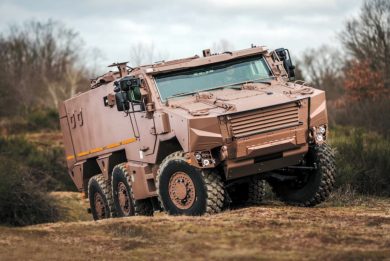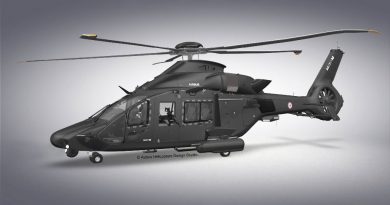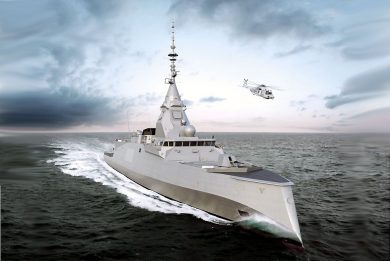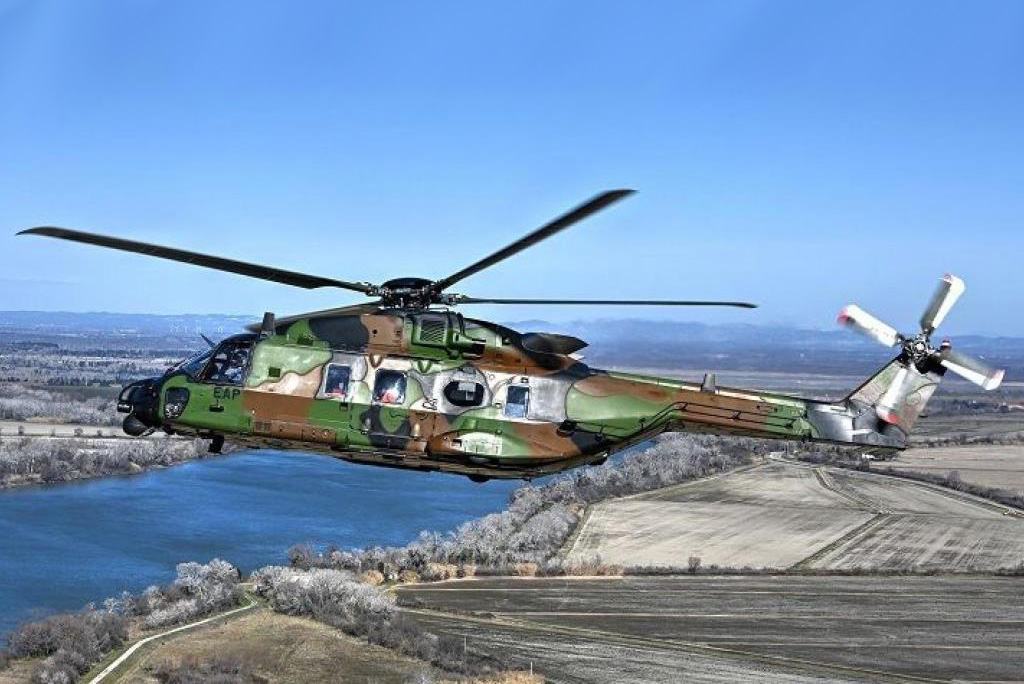
World first: the DGA carried out a test flight of a military helicopter with very high-grade sustainable fuel without modifying the engine or the aircraft
Paris, February 10, 2023 - On February 3, the [French] General Directorate of Armaments (DGA) successfully carried out a first test flight of a military helicopter with 84% Sustainable Aviation Fuel (SAF). This test reduced CO2 emissions by 75%, without modifying the aircraft or the engine.
This is the first time worldwide that a military helicopter has been able to fly with such a high content of sustainable aviation fuel in one of its two engines.
This three-hour flight was performed by a test crew (two test pilots, a test flight mechanic and two test flight engineers) from DGA Flight Tests and the Aeromobility Group of the Army Technical Section (GAMSTAT) on an NH90 helicopter from the Army specifically equipped for the occasion.
Leaving from the DGA Flight Tests expertise and test center in Istres (Bouches-du-Rhône), the helicopter was able to perform its flight in accordance with the established plan. This test was conducted with the participation of the Operational Energy Department (SEO) and the technical assistance of the manufacturers Safran Helicopter Engines, TotalEnergies and Airbus Helicopters.
This test is part of the defence energy strategy and the "Climate & Defence" strategy of the Ministry of the Armed Forces, to consume less, better and safer. It makes it possible to prepare for the future, with the evolution towards cleaner military equipment that is more independent of fossil fuels.
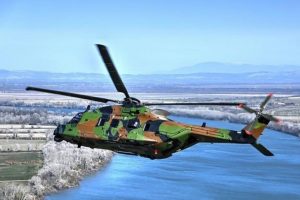
A fuel made from used cooking oils
The fuel, prototyped specifically for this test, was produced by TotalEnergies from used cooking oils using HEFA (hydrotraitement des huiles et des graisses, hydrotreating oils and fats) technology. Its production and use cycle has a carbon footprint four times less than that of a fossil-based aviation fuel, thus meeting the criterion of a minimum reduction of 65% required by the European Union to qualify sustainable fuel.
The test carried out on one of the helicopter's two engines made it possible to test the characteristics of this fuel (consumption, engine power) and the operational consequences of its use (functioning of the fuel circuit, performance and thermal signature). Several lines of work have been identified for the future: experiments over longer periods to check the good tolerance of the helicopter systems and its engines (absence of impact on service life and maintenance), or even the development of bio-based aromatics to further increase the proportion of sustainable fuel.
When available with a 100% incorporation level, SAFs will offer the potential to reduce CO2 emissions by 90%.
A test that is part of the defence energy strategy and the "Climate & Defence" strategy of the Ministry of the Armed Forces
This test, which received financial support from the Defence Innovation Agency (AID), illustrates the multiple technical skills of the DGA (theoretical analyses, expertise in aeronautical systems, risk management, conduct of flight tests ) and SEO (supply, quality control) by confronting the challenges related to the use of this fuel. It enriches and reinforces the studies carried out by the DGA on decarbonization (requirements for eco-design and reduction of the environmental impact in the specificities of weapon systems, increased skills on electric aircraft).
Unofficial translation by EDR On-Line
Photos courtesy DGA

